By: Senator John Curtis (R-UT)
July 11, 2025
On July 4th, President Trump signed into law a broad reconciliation package—The Big Beautiful Bill. Among its many provisions were serious steps to stabilize our budget, reduce inflationary pressure, and yes, address the unsustainable growth of Medicaid. That last provision has become the focus of heated rhetoric and unfortunate misinformation. I recognize that there are those with legitimate concerns about the future of Medicaid and I will always welcome Utahns to share their concerns with me and my office.
Let’s be clear: no one is gutting the safety net. America remains a generous society. But compassion without accountability risks collapsing the safety net under its own weight. The goal of Congress is not to strip assistance from those in need, but to restore balance and sustainability to programs like Medicaid—so they endure for future generations.
Medicaid was created with a noble purpose: to ensure that low-income children, pregnant women, individuals with disabilities, and the elderly aren’t left behind. That mission remains sacred. But over time, Medicaid has grown far beyond its original scope. Since 2019, spending has soared nearly 60%. In some places—like New York City—over 60% of residents are enrolled. That was never the design, and it’s not financially viable.
The reforms in this bill are responsible. They do not cut a single dollar from the current Medicaid program. They simply slow the rate of growth. That’s something every taxpaying family understands. Families don’t double their household budgets every few years; neither should the government.
What’s more, we’ve introduced modest work and community engagement requirements for able-bodied adults without children. These requirements are not harsh. In fact, they reflect values many of us in Utah and across the country hold dear: contributing when we are able, helping one another, and taking steps toward self reliance. These provisions don’t apply to anyone who is disabled, pregnant, or caring for a young child. And for those required to participate, the threshold is reasonable: 20 hours a week of work, school, or volunteering.
Beyond individual participation, we also must ensure that institutions—especially those serving rural communities—are positioned to thrive under these reforms. Some of my colleagues argue that closing these loopholes will unintentionally harm rural providers. I have great sympathy for our rural communities and the institutions that keep them healthy. That’s why the bill creates the Rural Health Transformation Program, which provides $50 billion to encourage states to prioritize health care outcomes for rural residents.
Others claim these rules will throw millions off the rolls. The Congressional Budget Office estimates 4.8 million may not comply, which should concern all of us—not because we’re eager to disqualify them, but because it reveals the scale of disengagement from work among prime-age adults. That’s not a Medicaid problem—that’s a societal one.
Critics say states can’t manage these requirements, or that red tape will trip up the poor. But that’s simply not true. States have successfully administered similar rules for decades in food stamps and cash assistance. And the people administering Medicaid at the state level are committed, compassionate public servants—not bureaucrats out to deny help.
I’ve even seen how the current system can, unintentionally, discourage progress. In Utah, I met a man who wanted to transition off Medicaid because he found a job with health insurance. But he faced resistance—not from the system itself, but from those whose jobs depend on keeping enrollment high. That’s not compassion—that’s inertia.
Let me be clear: this conversation is not about blame or division. It’s about finding sensible solutions that deliver real results. I believe we can preserve and even improve Medicaid by restoring balance, preventing misuse, and ensuring it reaches the people who truly need it.
It’s important to note that the Medicaid system is not the only safety net we have in our society. There are other programs at the state and local government level, at non-profits, and religious institutions, that exist, especially in Utah, that help those facing hardship.
If we don’t act now, we risk breaking the very system we’re trying to protect. And when that happens, those who will suffer most are the very people we set out to help.
This isn’t easy work—but it is necessary. And it reflects a truth Utahns understand deeply: sometimes the kindest thing we can do is make hard choices today to ensure lasting support tomorrow.
Let’s reject the false choice between compassion and fiscal sanity. Let’s reject the scare tactics and the shouting. Instead, let’s choose compassion—rooted in purpose, grounded in principle, and aimed at helping every American rise.
